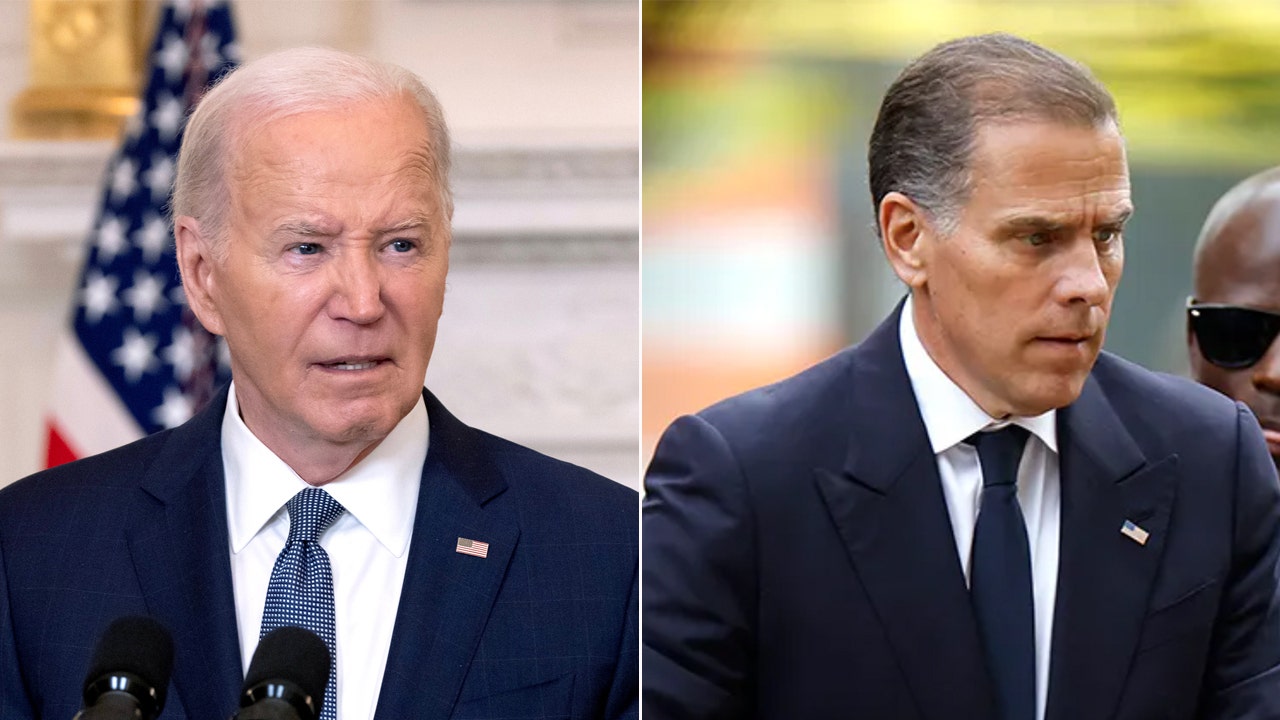Biden adviser: Hunter’s presence on Supreme Court call ‘inappropriate’

A top advisor to former President Joe Biden reportedly labeled Hunter Biden’s presence on a call about the Supreme Court’s landmark ruling that former presidents have some immunity from prosecution as “inappropriate,” according to a new book titled “2024: How Trump Retook the White House and the Democrats Lost America.” The book, published on Tuesday, delves into how Biden’s team dismissed concerns about his age during the 2024 election cycle and details how President Donald Trump secured his victory.
The book reveals that Biden’s White House chief of staff, Jeff Zients, coordinated a video call with key Biden staffers, including White House Counsel Ed Siskel, communications director Ben LaBolt, senior advisor Mike Donilon, and others to discuss whether Biden should provide an on-camera statement in response to the Supreme Court’s July 2024 decision.
Although Donilon had already drafted a written statement, Biden expressed a desire to speak on-camera about the matter. As the staffers started to discuss the specifics of such an appearance, Hunter Biden unexpectedly joined the call.
An unidentified voice from Biden’s screen suggested an Oval Office address, catching some aides off guard. It was later revealed that the voice belonged to Hunter Biden, who the White House staff did not realize was on the call. Siskel expressed concerns about the optics of using the Oval Office for the address.
Hunter Biden defended the suggestion, arguing that it was one of the most consequential decisions the Supreme Court had ever made and that his father had the right to use the powerful imagery of the Oval Office to convey the message. Ultimately, they settled on the Cross Hall for the address. However, after the call ended, Siskel expressed to colleagues that Hunter’s presence was inappropriate.
Biden delivered a brief speech in response to the Supreme Court’s ruling and took no questions from the press, following the suggestion of his son.
The book also details the Supreme Court’s 6–3 ruling in Trump v. United States, which granted former presidents significant immunity from prosecution for acts committed in an official capacity. The case stemmed from charges against Trump related to the Jan. 6, 2021, Capitol riot and other alleged election interference.
“2024” is one of several books released this year that discuss Biden’s mental decline while in office and Trump’s election victory. Authored by Josh Dawsey, Tyler Pager, and Isaac Arnsdorf, the book sheds light on Hunter Biden’s involvement in his father’s affairs during his presidency.
According to Dawsey, Hunter Biden played a significant role in the president’s orbit, participating in calls, aiding in campaign decisions, and causing concerns for the president as he sought re-election.
The book underscores the intricate dynamics within the Biden administration and sheds light on the complexities of presidential decision-making. Hunter Biden’s involvement in official matters raises questions about transparency and appropriate boundaries in the political sphere.
As the political landscape continues to evolve, books like “2024” provide valuable insights into the inner workings of the White House and the dynamics that shape decision-making at the highest levels of government.




